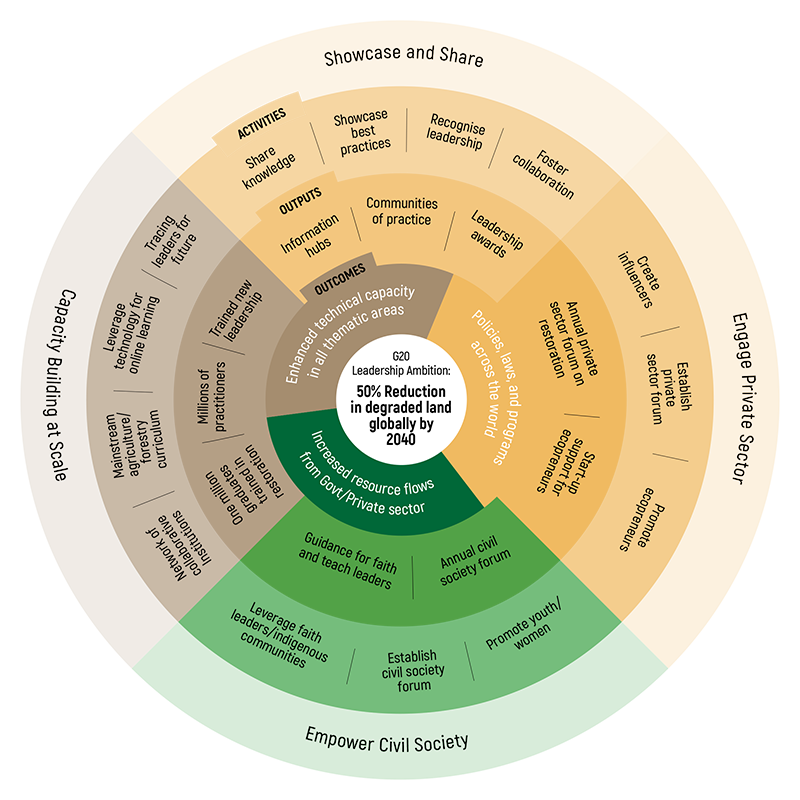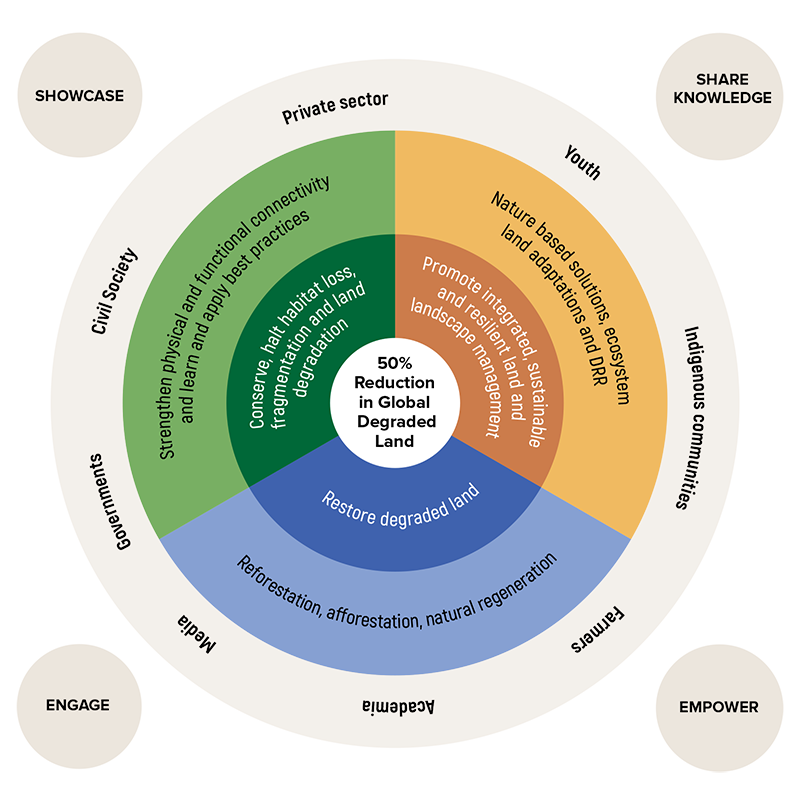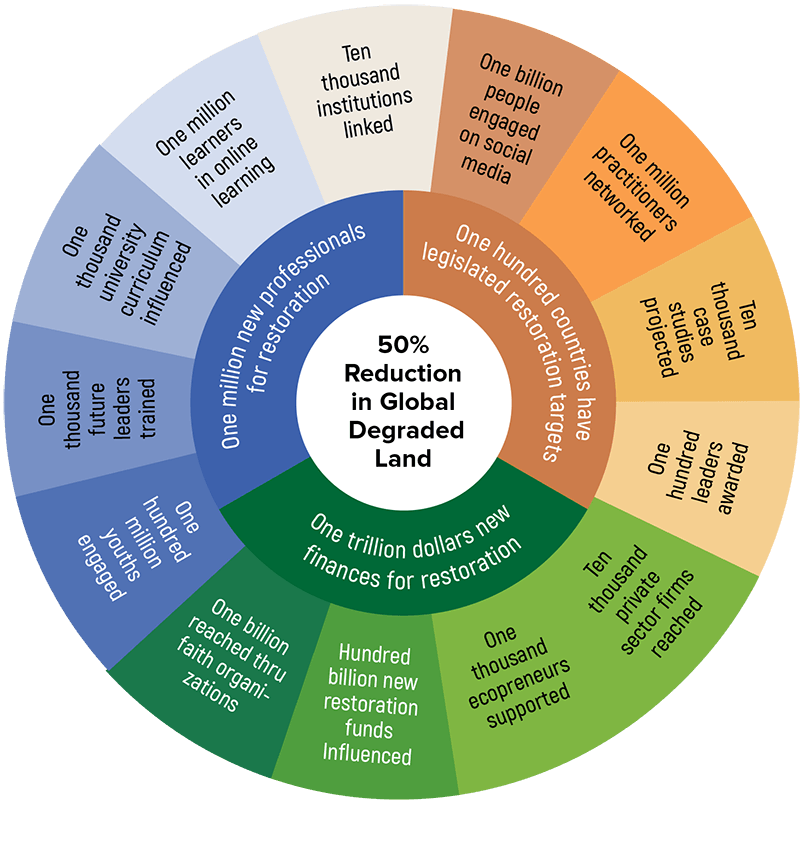Implementation Strategy
G20 Ambition
The ambition of the G20 Global Initiative on Reducing Land Degradation and Enhancing Conservation of Terrestrial Habitats is to achieve a 50 percent reduction in degraded land by 2040.
Download Strategy and Workplan 2022-24 >>
Visual theory of change

Cross-cutting principles

Global and inclusive of all countries
While initiated by G20 members, the Initiative will seek to be inclusive of all countries who are interested in being be associated with it. All countries will have opportunities to both contribute to the Initiative as well as benefit from it.

All terrestrial ecosystems are included
The Initiative stresses that ecosystems including, but not limited to, forests, grasslands, drylands, rangelands, croplands, peatlands, mangroves, soil, tundra, karst and wetlands, are essential for the existence, survival and sustainability of biodiversity as well as food security and human well-being. Therefore, the Initiative will cover the entire range of ecosystems, which also include riverine systems and watersheds.
The important role played by cities
While global Initiatives often operate at the national level, cities can play an important role in the implementation of this Initiative. The Initiative will place particular emphasis on working with city governments to increase green cover within cities as well as improve ecosystem protection in peri-urban areas.

Multi-stakeholder-based
The initiative will work not only with governments but also with all other stakeholders: the private sector, academia, the media, communities, non-governmental organizations, faith-based institutions, financial institutions, etc. The Initiative will establish a number of new platforms to bring together the stakeholders who are interested in the domain area of land restoration and develop strategies and action plans to increase their participation.

Networks and partnerships
The Initiative will connect and generate functional partnerships with the United Nations Rio conventions (Convention on Biological Diversity (CBD), United Nations Convention to Combat Desertification (UNCCD), United Nations Framework Convention on Climate Change (UNFCCC) and other global initiatives (Bonn Challenge, United Nations Decade on Ecosystem Restoration.

Importance of leadership
Transformative action in the domain of land restoration happens when visionary leadership take up land restoration and habitat conservation issues as one of their priorities and steers it towards upscaling and implementation. Learning from such leadership actions as well as recognizing them, including through global awards, is important to provide signals for leadership elsewhere. It is also important that emerging leaders from all sectors – politics, the public sector, non-governmental organizations (NGOs) and academia – are sensitized and trained to take up restoration and conservation issues so that interest on this topic continues from the current generation of leaders to the next.

Aligned with other initiatives
The Initiative will work with all stakeholders, government, private sector, academia, media, community, NGOs, financial institutions, and others.
Pillars of Action
Showcase
Showcase success stories that benefit nature and safeguard people’s lives, jobs and incomes.
Engage private sector
Engage the private sector in sustainable land management, land restoration and habitat conservation.
Empower civil society
Empower civil society and the public on land stewardship for sustainable development.
Share knowledge
Share knowledge and develop and mobilize capacity between G20 members, non-member countries and other stakeholders to collectively deliver on land conservation and restoration outcomes.

Key Performance Indicators
